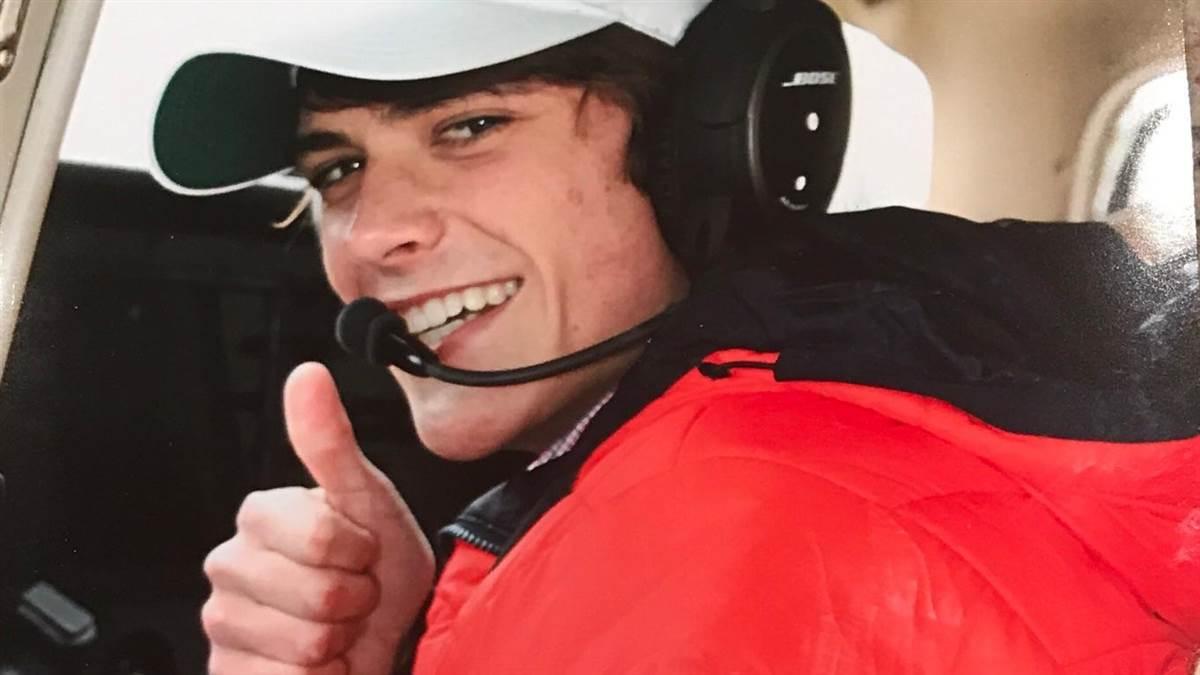You Can Fly scholarships open
Support available for high school students
By Ian J. Twombly
High school students take note: Homework can pay off. AOPA’s You Can Fly program is once again offering a total of $100,000 in flight training scholarships to deserving high school students, ages 15 to 18. The scholarships are made possible by donations to the AOPA Foundation.

Applying is easy. The window opens in early March. Students should go online to fill out the application. Completed applications will require two letters of recommendation, one of which must be from a teacher or school official. Twenty students will each win $5,000 to be used toward their flight training.
The AOPA High School Flight Training Scholarship program launched in 2016 and focuses on helping young men and women pursue their dreams of becoming a pilot. This program is part of the larger You Can Fly High School Aviation Initiative, which is working with high schools to develop more aviation-oriented science, technology, engineering, and math programs.
As part of the high school initiative, AOPA is working with Purdue University to build aviation curricula that fit within career and technical education pathways and are focused on piloting, aerospace engineering, aviation technology, and drones. The program also hosts a yearly symposium, which attracts hundreds of educators and administrators from around the country to share best practices. This year’s symposium will be November 6 and 7 at the American Airlines C.R. Smith Museum in Dallas, Texas.
New Pilots
A celebration of certification
Checkrides mark a milestone birthday

By Dan Namowitz
It’s your birthday and, as a bonus, it’s Saturday. You can kick back, or you can take a test in the morning, and if all goes well, another in the afternoon.
Benson Williams of Shreveport, Louisiana, chose option B—in fact, had been planning to do so for a long time. The result of his labors on December 10, 2016, the day he turned 17, was that he became a private pilot, airplane, single-engine land, in the morning, and tacked on his instrument rating that afternoon.
Not one to rest on laurels, Williams added a multiengine rating a few days later, bringing to fruition a flight-training project that had been envisioned for many years.
Pilots are plentiful who have participated in the happy tradition of taking a flight test on the first day of their eligibility, which in Williams’ case, for a private pilot ticket in a powered aircraft, was upon turning 17. A related tradition is to solo on the first possible day—which Williams had accomplished the previous year in a Cessna 182.
It’s been a natural progression for someone who has grown up with aviation and since age 5 has occupied cockpits of aircraft from helicopters to a Cessna Citation CJ3+ business jet with his father, C. Allen Williams, a 7,000-hour airline-transport-rated pilot and 25-year AOPA member who is an oil-and-gas exploration entrepreneur from Shreveport, Louisiana.
Benson’s father credits the success of his son’s program to Robert “Brian” Morgan of Springfield, Missouri-based Premier Flight Center, including Morgan’s hosting of the student in his home at Gimlin Airport, south of Springfield, for some concentrated training along the way. “They kept the plane right there behind the house,” the senior Williams said.
A four-day block of Benson Williams’ training while staying at a Texas ranch helped him prepare for his instrument rating by flying six hours a day in the south Texas “perfect weather.”
IFR and perfect weather?
“Perfect weather to train in,” he explained, describing his flight time, shooting approaches in conditions typified by 1,000-foot ceilings. “The real stuff is definitely a lot more than what people think it’s going to be, in my opinion.”
Williams’ advice for success in flight training focuses on motivation and determination.
“I think just practice to make perfection,” he said. “You’ve got to never give up. Get up every day saying ‘You can do it.’”
Air Safety Institute
Safety Alliance pools aviation safety content
Your training journey just got easier
“You’ve got the airplane.” Sweet. A quick glance at your instructor and, “I have the plane,” confirms it’s all yours. You’re flying! But flight training wouldn’t be complete without ground school. You must grasp aeronautical principles, weather, and proper decision-making concepts before putting theory to practice. Sounds tedious? It doesn’t have to be.
The AOPA Air Safety Institute (ASI) offers free interactive courses, live seminars, videos, publications, and quizzes to energize learning on the ground. You may also have scoured the internet to find general aviation safety content produced by others. But, if you’ve become frustrated by having to search multiple websites to find what you need when you need it, help is here.
The Air Safety Institute now offers easy access to a variety of aviation safety content from around the web through a new industry-wide initiative, the Safety Alliance. This initiative is the result of collaboration between ASI and several GA companies and organizations to bring GA safety education resources together in one location online.
Organized by topic on ASI’s Safety Spotlight web pages, and on the Safety Alliance web page, the content is free to all pilots. The Safety Alliance currently offers 19 topics that cover a spectrum of safety-related materials, including such topics as aerodynamics, flight instruction, and weather. A first in the industry, the Safety Alliance’s diverse programs, including informative videos, safety tips, instructional tools, and downloadable reference materials, are now easily browsed in one place.
ASI thanks the following for being part of the initial Safety Alliance launch: ASA, Jason Blair, Flight Chops, Garmin, Hartzell Propeller, Leidos, Rod Machado, MzeroA, PilotWorkshops.com, Sportys, TBM, and The Finer Points.


